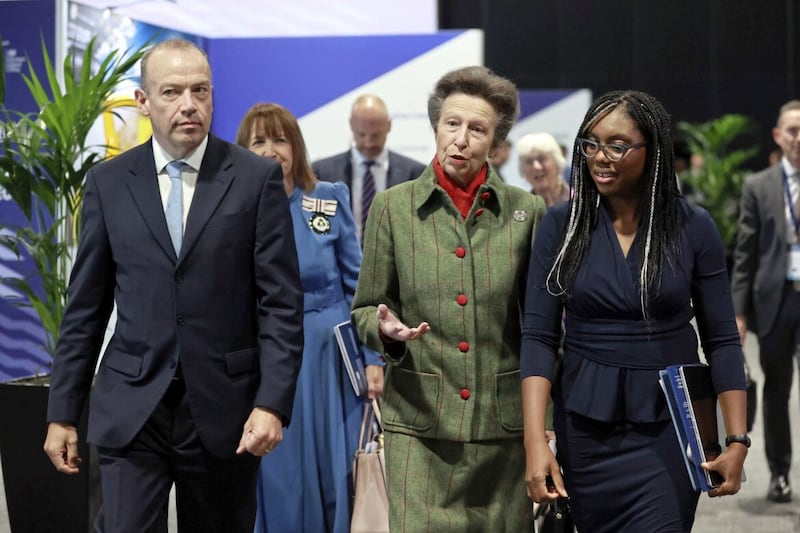EARLIER this month, young people across Northern Ireland received their A Level and GCSE results in a year like no other. There were record rises in the highest grades, with teachers having to make assessments of each pupil given that exams were just not possible this year once again.
Whatever the rights or wrongs – and there can be no perfect way to assess in a global pandemic - we firstly have to congratulate students after many years of hard work. We’ve all had tough times over the last 18 months, but school children have had some of the toughest of all, with their lives turned upside down at a critical time for their own development.
Regardless of the outcome for each pupil, they should remember that qualifications are just one of the factors employers look at when recruiting. Businesses value the resilience students have demonstrated throughout the pandemic enormously, alongside skills like creativity, communication, leadership and teamwork. So-called soft skills are fundamental to helping people become adaptable and employable throughout their working lives. In an increasingly automated world, human skills such as these can be a source of competitive advantage.
Now many young people will have been spending recent weeks and months to consider ‘what next?’. Many will go onto university, further education or perhaps straight into the workplace. Whatever route they choose, businesses are committed to helping young people get ready for the world of work - be it through work placements, apprenticeships, or first jobs. Universities will similarly be working hard to support students, helping them find places and showing flexibility when making admissions decisions.
These young people will play a key role in bridging Northern Ireland’s historical skills gap over time. Some 30 per cent of our 18-19 year olds leave the country each year, of whom less than a third return. We are the only region in the UK that exports our talented young people, with only 60 places in higher education per 100 applicants compared to other regions which in some cases have over provision. This results in many talented young people leaving Northern Ireland each year to continue their educational pathway elsewhere. In doing so, they incur significant levels of debt, in some cases while attaining qualifications that do not always add to their employability.
The CBI firmly believes that the Executive, in partnership with higher and further education providers and the business community, should work in partnership to design a sustainable funding model for a system which supports more young people staying in the region to continue their educational journey. We believe that this system should be flexible enough to allow young people to move between the tertiary education providers (university and further education colleges) across Northern Ireland supported by an 18-25 skills strategy and associated curriculum which will aid economic recovery and societal development.
And while our young people will be vital to Northern Ireland becoming a skills powerhouse in the future, there is just as big a role in upskilling and retraining our existing workforce. Of course, Covid-19 and the short-term pressures stemming from Brexit have placed a brake on economic growth, but scratch under the surface and one of the perennial restraints remains skills.
We recognise that fixing the current under-supply of skilled workers is complex, but that just makes the need for action all the more important. This will take time. For that reason, the NI Skills Strategy will have two, five and 10 year action plans attached to its delivery. But employers are struggling today to access both skills and labour and therefore short-term and immediate initiatives are also very important.
The short-term initiatives that were rolled out as part of the Covid-19 recovery scheme, were a real boon. The 1,000 free places in cyber skills awareness and the remote learning courses rolled out by local HE and FE institutions are good examples of short-term initiatives.
Business strongly recommends that free and flexible short courses should be used to encourage the upskilling and retraining of individuals into areas of skill shortages. For Northern Ireland skills shortages are widespread, ranging from hospitality workers to software engineers. More will be needed and that should include a Shortage Occupation List – a key plank of our new immigration system – that recognises the skills needs at a local level, not just UK.
And finally when it comes to skills, I must always come to the dysfunctional Apprenticeship Levy, which is stunting development here and in the rest of the UK. We are delighted to see the Department of Economy propose a flexible skills fund, that allows employers to put funds to use where they need them, not only apprenticeships. Reform is long overdue.
Whatever the future brings for our young people in Northern Ireland, businesses will stand with them to give them the best opportunity to get on in life. The next generation will be the king-makers if we are to be a highly skilled, prosperous and productive economy in the years ahead.
Angela McGowan is CBI Northern Ireland director






